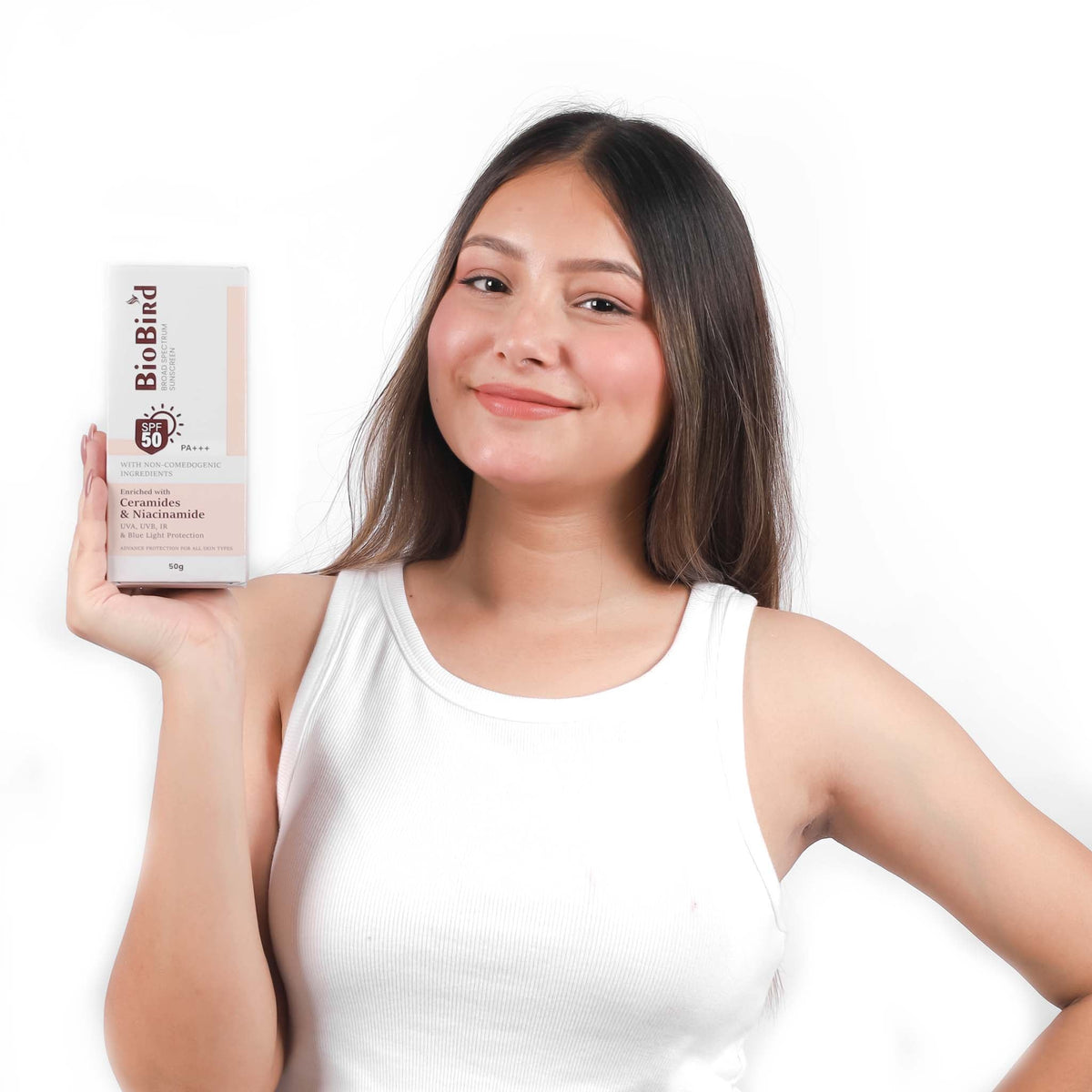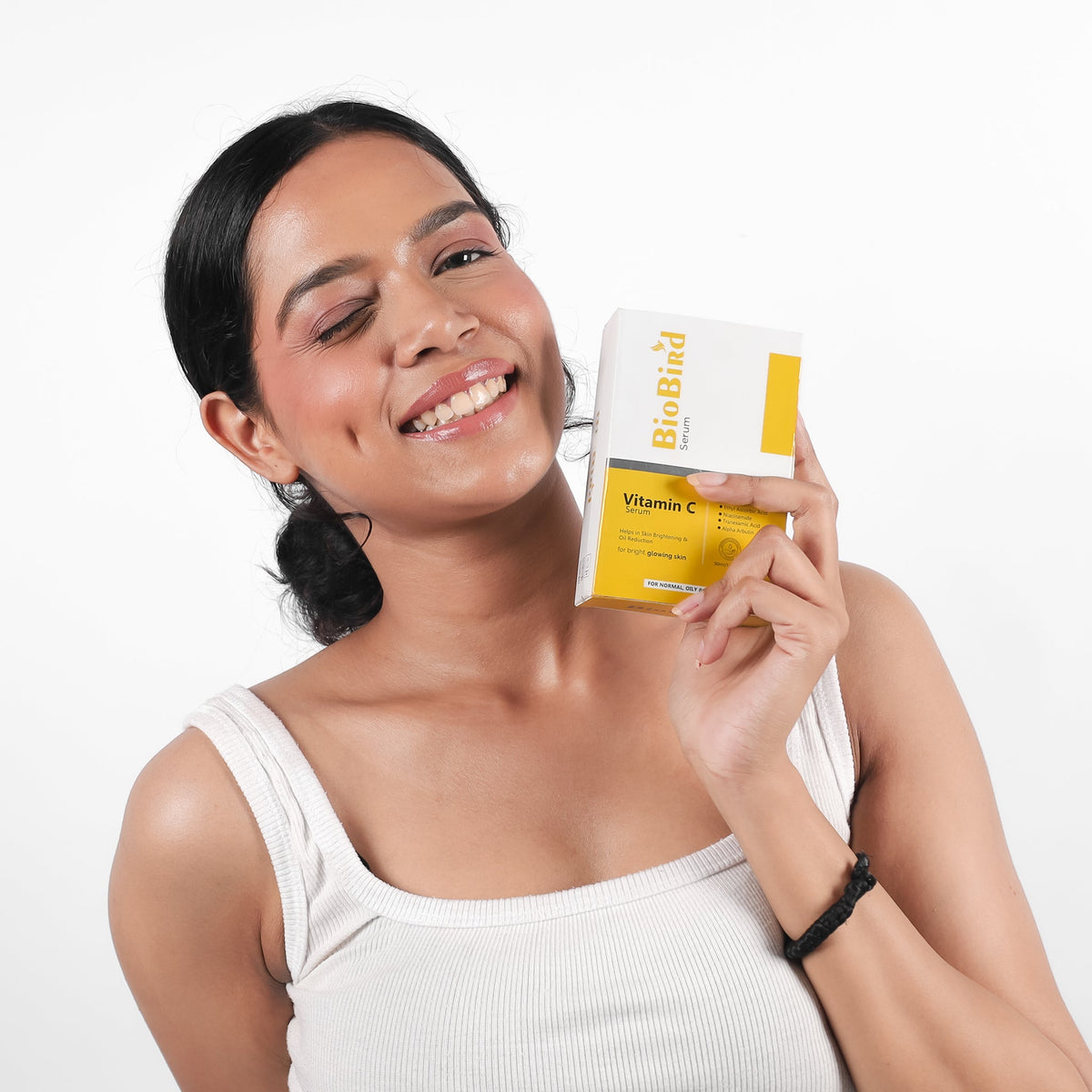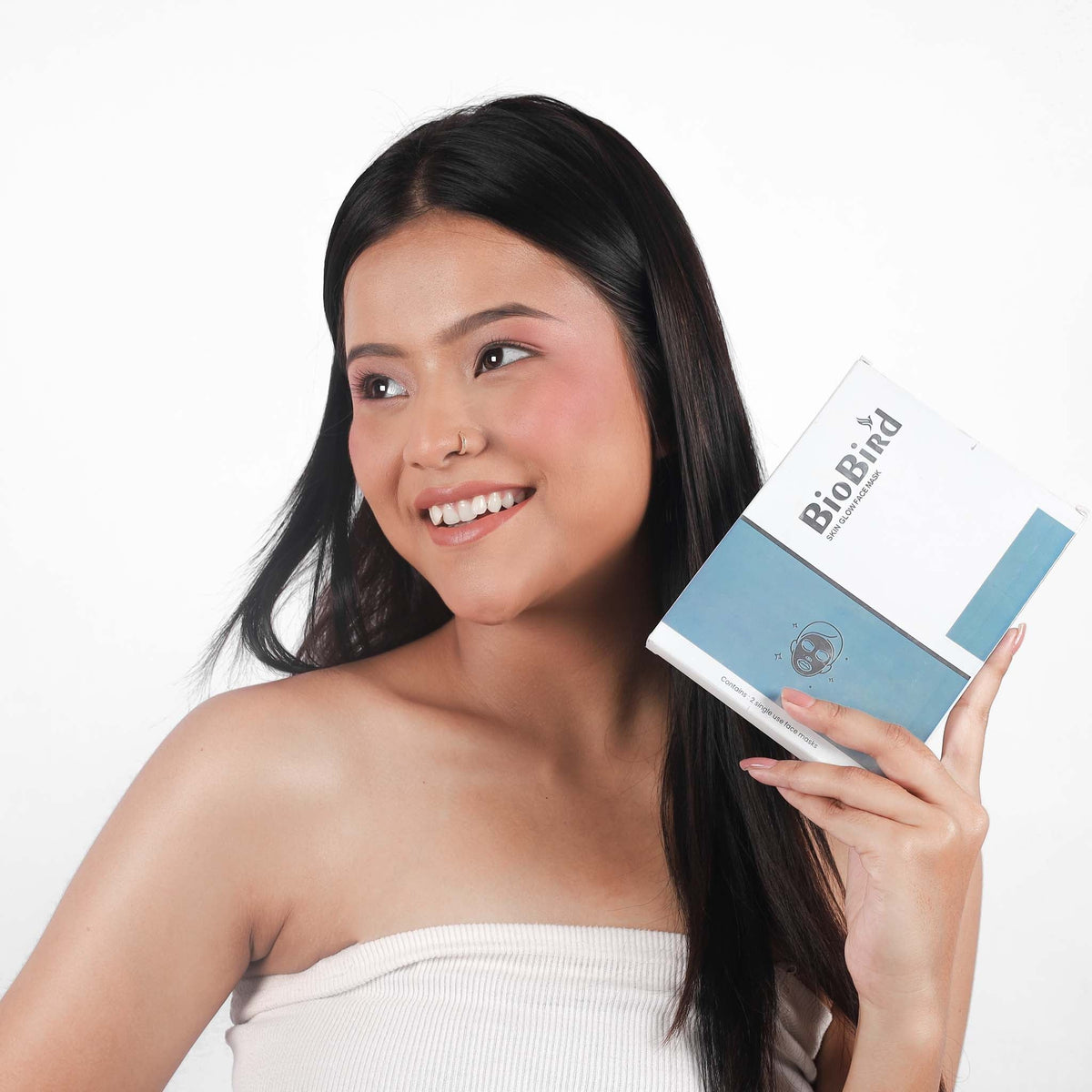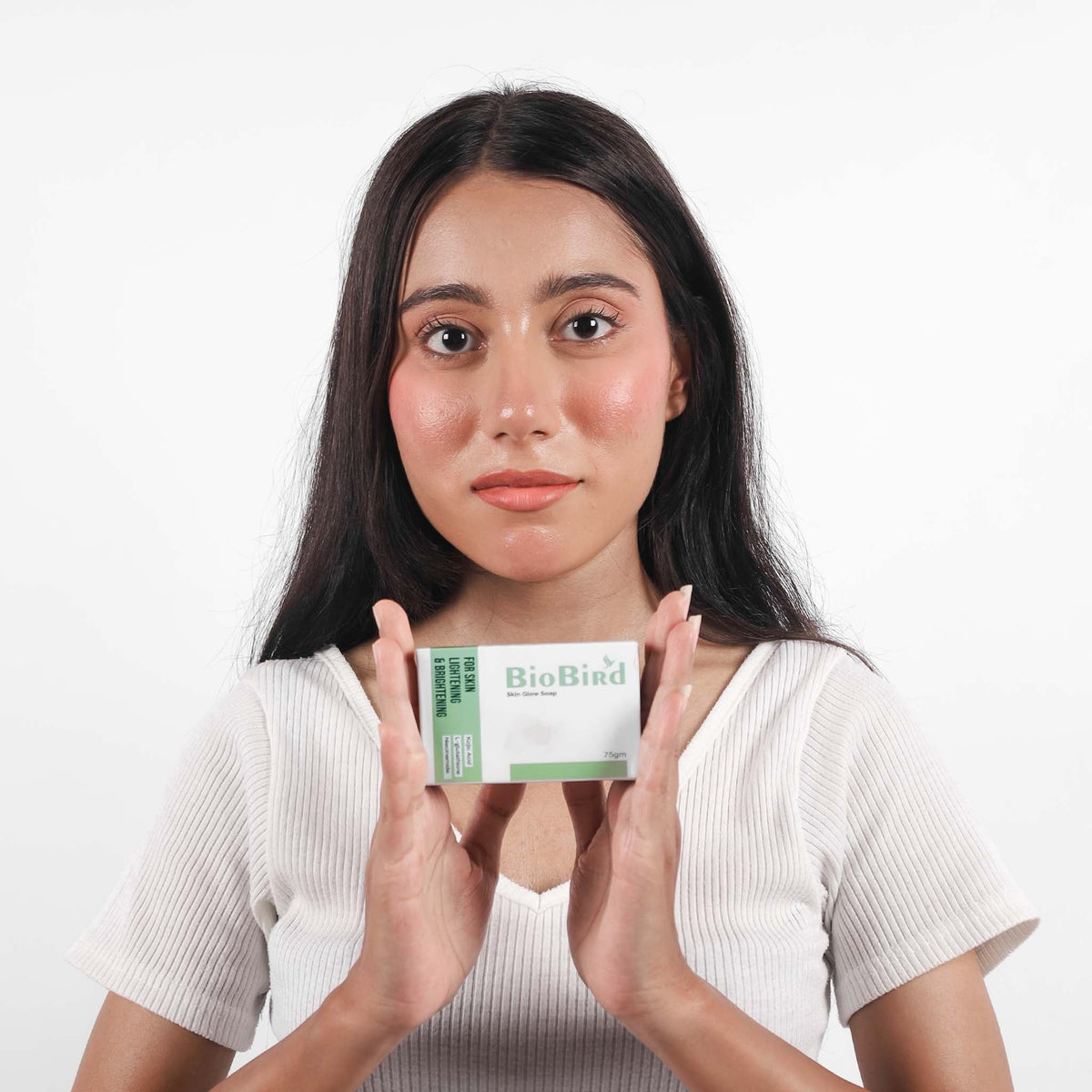Do you find yourself blotting excess oil from your T-zone, feeling self-conscious about your shiny, greasy skin? Does your struggle with frequent breakouts, acne, and pimples make you hesitant to apply moisturizer, especially in the summer? If you've ever wondered, "Will using a moisturizer make my oily skin even worse?"—you're not alone.
Many people believe that oily skin doesn’t need moisturizing, fearing it will only add to the greasiness. But this is just a common myth. The reality is quite the opposite—oily skin needs hydration just as much as any other skin type, and skipping moisturizer may make your skin oilier.
Curious to know why? Let’s explore the facts and uncover the truth about oily skin and moisturization.
Article Highlights
- Understanding Oily Skin and its Characteristics
- What Causes Oily Skin?
- Common Myths about Oily Skin
- Why Moisturization is Essential for Oily Skin?
- How to Choose the Best Moisturizer for Oily Skin?
- Conclusion
- Frequently Asked Questions (FAQs)
Understanding Oily Skin and its Characteristics
Oily skin, also known as seborrhea, is a common skin condition affecting both men and women, typically from puberty to around 60 years of age. Studies indicate that 66% to 75% of individuals aged 15–20 years experience oily skin. This condition can become chronic and often makes individuals feel unattractive and uncomfortable.

Oily skin tends to appear shiny and greasy and is frequently associated with enlarged facial pores. These enlarged pores are more prone to clogging, leading to acne, blackheads, and whiteheads.
What Causes Oily Skin?
Oily skin occurs when sebaceous glands produce excessive sebum, giving the skin a greasy appearance. On average, adults produce about 1 mg of sebum per 10 cm² every three hours. If this rate falls below 0.5 mg/10 cm², it can lead to dry skin (xerosis). However, when it exceeds 1.5 mg/10 cm², it results in oily skin (seborrhea).

While some people struggle with excess oil, others deal with dry skin, and the exact reason behind this variation is still unclear. However, hormones, particularly 5α-dihydrotestosterone (DHT), play a key role in stimulating sebaceous gland activity and sebum production. In addition to hormones, several other factors can influence sebum production, including:
- Diet – What you eat can impact oil production. A diet rich in high carbohydrate and sugar levels can increase insulin levels, which have been linked to increased sebaceous gland activity.
- Age – Sebum production is highest between ages 15–35 and declines with age. It peaks during puberty and gradually decreases in the 60s or 70s.
- Gender – Men generally have higher sebum production due to higher testosterone levels. However, women experience increased oil production during ovulation, likely due to progesterone.
- Ethnicity – Pore size and oil production vary among ethnic groups. For example, Chinese women tend to have smaller pores and less oil, while Black individuals often have larger pores and higher sebum levels. Some studies suggest no major difference between Black and white skin, while others indicate that Black individuals may have higher sebum levels.
- Climate & Temperature – Sebum production increases in hot and humid weather. Studies show that a 1°C rise in temperature can increase oil secretion by 10%. This change is due to variations in sebum viscosity, which affects how easily oil flows to the skin’s surface.
Since oily skin is influenced by multiple factors, while some, like hormones and genetics, are beyond our control, others, such as diet and skincare habits, can be managed to maintain healthy skin.
Common Myths about Oily Skin
Oily skin is often misunderstood, leading to myths that can make managing it more challenging. Many believe that stripping away oil or avoiding moisturizers will help, but the reality is quite different.

To maintain healthy, balanced skin, it's important to separate fact from fiction. Here are some of the most common myths about oily skin—and the truth behind them.
Myth 1: Oily Skin doesn’t need moisturizer
Fact: Skipping moisturizer can make oily skin worse. When skin lacks moisture, it overcompensates by producing even more oil. Use a lightweight, oil-free moisturizer to keep the skin balanced.
Myth 2: Oily Skin means you have hydrated skin
Fact: Oil does not equal hydration. Oily skin can still be dehydrated, meaning it lacks water, not oil. Hydrating ingredients like hyaluronic acid help maintain moisture without adding grease.
Myth 3: Washing your face more often reduces oiliness
Fact: Overwashing strips natural oils, leading to increased sebum production as the skin tries to compensate. Stick to twice-daily cleansing with a gentle, non-stripping face wash.
Myth 4: Oily Skin ages gradually
Fact: While oily skin may develop wrinkles later, it is more prone to enlarged pores, acne, and uneven texture, which can still make skin appear aged over time.
Myth 5: Makeup makes Oily Skin worse
Fact: Not all makeup is bad for oily skin. Using non-comedogenic, oil-free products and setting powders can help control shine without clogging pores.
Myth 6: Diet doesn’t affect Oily Skin
Fact: While genetics play a role, high-glycemic foods (sugary, processed foods) and dairy can trigger excess oil production and acne. A balanced diet can improve skin health.
Why Moisturization is Essential for Oily Skin?
Now that we have debunked the common misconception that oily skin does not need moisturization, it’s important to understand why hydration is essential for balanced and healthy skin.
The outermost layer of skin, the stratum corneum, serves as a highly effective biological barrier, protecting underlying tissues from water loss and external damage. While hydration is regulated by the stratum corneum, sebum (oil) is produced by the sebaceous glands. Just because the skin is oily does not mean it is adequately hydrated. When oily skin lacks moisture, it often compensates by producing even more oil, leading to increased greasiness and clogged pores.

Therefore, moisturization is essential for strengthening the skin barrier and preventing water loss. A well-formulated moisturizer helps restore balance, keeping the skin hydrated without clogging pores or adding unnecessary shine. Proper hydration also improves skin texture, reduces excessive oiliness, and ensures a smoother, healthier appearance.
How to Choose Moisturizer for Oily Skin?
Selecting the right moisturizer for oily skin requires understanding key ingredients and formulations that balance hydration without clogging pores. Moisturizers contain a blend of emollients, occlusives, and humectants, each playing a vital role in maintaining skin hydration and barrier function.
- Occlusives form a protective layer on the skin’s surface to lock in moisture. However, heavy occlusives may not be ideal for oily skin as they can contribute to clogged pores.
- Humectants attract moisture to the skin and provide lightweight hydration, making them particularly beneficial for oily skin. Common humectants include hyaluronic acid and glycerin.
- Emollients help smooth and soften the skin by filling in gaps between skin cells. Non-comedogenic emollients like squalane and ceramides are suitable for oily skin.

The most common moisturizer formulations are emulsions, primarily lotions (oil-in-water emulsions) and creams (water-in-oil emulsions). More complex emulsions—such as oil-in-water-in-oil formulations, serums, gels, and sprays.
When choosing a moisturizer, look for labels that mention, light weight, non greasy, oil-free, and non-comedogenic. To effectively hydrate oily skin, opt for lotions and gels, which have a higher water content than creams or ointments, as they absorb quickly without leaving a greasy residue.
For added convenience, consider a moisturizer with SPF 30 or higher to simplify your skincare routine. If using a separate sunscreen, opt for mineral-based formulas with zinc oxide or titanium dioxide, as they are less likely to cause breakouts.
Conclusion
The idea that oily skin does not need moisturization is a widespread myth that can lead to increased oiliness, dehydration, and skin imbalance. Using a lightweight, oil-free, and non-comedogenic moisturizer helps regulate oil production, strengthen the skin’s protective barrier, and maintain proper hydration without clogging pores. Instead of avoiding moisturizers, those with oily skin should focus on choosing the right formulations to support their skin’s needs.
Frequently Asked Questions (FAQs)
- Can oily skin be dehydrated?
Yes, oily skin can lack water while still producing excess oil. Dehydration can cause irritation, dullness, and increased oil production.
- How often should I apply moisturizer if I have oily skin?
Apply twice daily—once in the morning and once at night—to keep the skin hydrated and balanced.
- Can I skip moisturizer if I have acne-prone oily skin?
No, skipping moisturizer can worsen breakouts. Use a light, hydrating formula to support the skin barrier.
- What happens if I don’t moisturize oily skin?
Skipping moisturizer can lead to dehydration, increased oil production, and a compromised skin barrier, making the skin more prone to irritation, acne, and dullness.
- How to apply moisturizer for effective hydration?
For optimal hydration, apply your moisturizer while the skin is still damp, such as immediately after washing your face or showering. This helps lock in moisture and keeps your skin balanced and refreshed.






0 comments